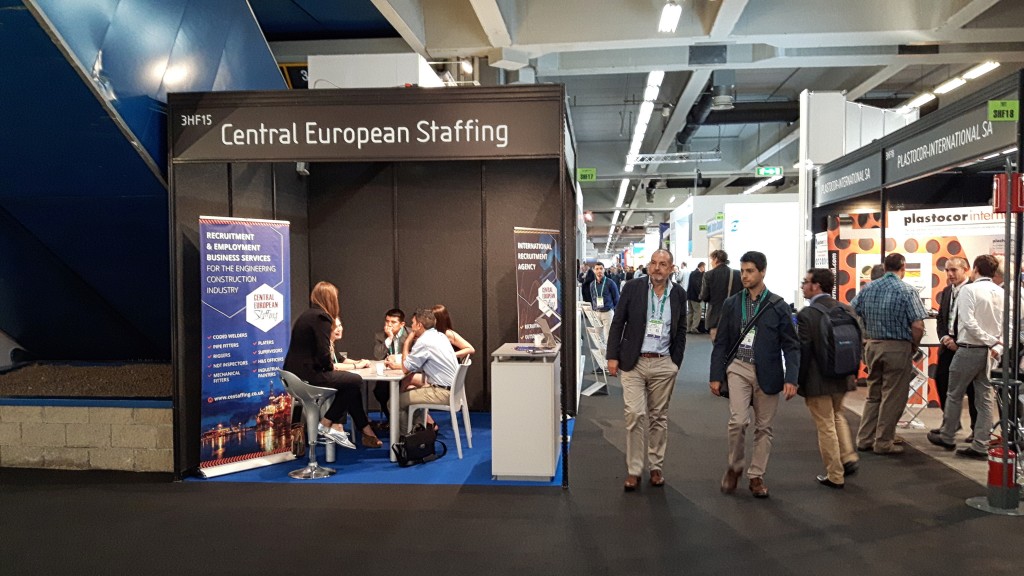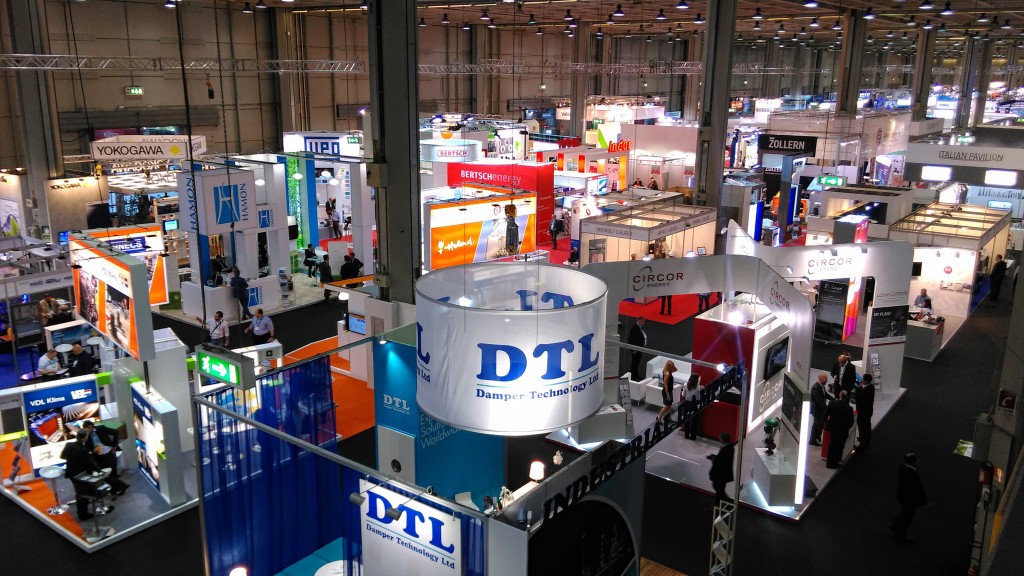Constant Change Ahead: Power-Gen Europe 2016
Canterbury: Change is the one constant in the energy sector today. Keeping this in mind, Central European Staffing (CES) joined 13500 participants and over 500 exhibitors in Milan at the Power-Gen Europe and Renewable Energy World Europe and found this year’s edition to be an opportunity to refresh industry knowledge, gain new insight and build valuable business networks.

This year’s event opened with the highly anticipated Joint Keynote Session from Enrico Viale, Head of Global Generation, Enel Group; Giuseppe Bergesio, CEO of IREN Energia; and, Robert Guest, Foreign Editor for The Economist. The speakers offered diverse perspectives from the power industry today – providing visitors with a comprehensive and insightful overview of the European sector.
The transformation of Europe’s energy system still raises many questions seeking answers and needs new solutions to contemporary challenges. Those most likely to provide solutions gathered in Milan. Power industry professionals punctuated the three-day event with practical insights for delivering the promises set out at COP21.
The panel debated the implications of decarbonisation post-COP21, the development of energy storage and the speed of the energy transition. The experts agreed that while large strides have been made towards Europe’s energy targets, care needs to be taken to ensure the right thinking, regulation and innovation is available to support the transition.
“We are thrilled. The support from the industry here in Milan completely exceeded our expectations,” says Nigel Blackaby, Conference Director of PennWell.
“The success of the event demonstrates huge enthusiasm, optimism and determination from technology providers and industry insiders to make the most of the many opportunities that are emerging from the energy transition and deliver on our COP21 promises.”
The conference focused on issues such as decentralized energy, flexible power systems, energy storage, biomass and the decarbonisation of Europe.
The European Union aims to reduce greenhouse gas emissions by 80–95% in 2050 compared to 1990 levels. The transition towards a low-carbon economy implies the almost complete decarbonisation of Europe’s power sector. In line with economic theory, the decarbonisation of Europe’s power sector is achieved at minimal costs under a stand-alone CO2 reduction target, which ensures competition between all low-carbon technologies.
According to the assumptions of the COP21 agreement, the process should be pursued through consuming fewer fossil fuels and committing to more renewable energy sources.
However, despite the fact that the importance of renewables in the EU more than doubled (from 12 per to 25 per cent) between 1990 and 2012, it is still necessary to provide backup sources when intermittent renewables cannot cover in-time energy demand.
Thermal power can perform this function as it complements the intermittent nature of renewables with dispatchable and flexible backup generation. Taking into account various decarbonisation scenarios, by 2030, it can be assumed that thermal power generation (including biomass) will range from 34.1% to 53.3%.

Power Gen 2016 hosted many discussions, Central European Staffing booth in Hall 3
A special session of Power-Gen Europe on Wednesday 22nd of June was devoted to decentralized energy, which can operate autonomously and whose distribution section can be separated easily. This is now extremely important. It offers a solution for safeguarding against a massive blackout. Even though this idea may seem to have been inspired by a disaster movie, the issue is real and serious and will be widely discussed in the near future.
Another day of the conference focused on energy storage issues. A series of debates and panel discussions supported by the European Association for Storage of Energy (EASE) covered the topics of energy storage policies and technologies, case studies and research.
All the heavyweights were on hand. Siemens AG, Amec Foster Wheeler, Mitsubishi Hitachi Power Systems Europe, Shanahan Engineering, Bilfinger SE, MAN Diesel & Turbo SE were just a few of the exhibiting companies.
Investment was another key focus of the programme, giving companies the opportunity to hear insights direct from investors.
Hall 3 hosted a section dedicated to decentralized power companies. A significant number of companies represented the renewable energy sector. Regardless of the size and scope of the stands, all exhibitors met in Milano Congressi for the same purpose.

Power Gen Europe 2016, Hall 3
Strolling between the stands, regardless of the specialization of companies, you could hear the same discussions on the development of the energy sector and the hazards and rewards ahead. The conclusion in most cases was the same: the best possible solution is to prepare for evolving change.





